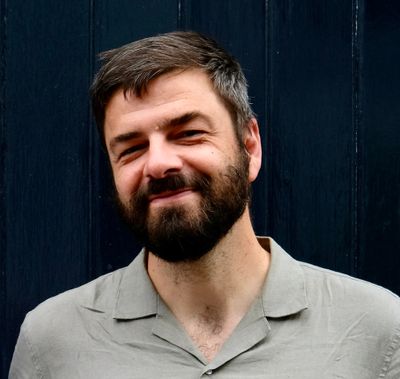Early mornings are pristine, they’re my favorite time of the day. As the sun keeps coming up earlier and earlier, I find myself waking up at 6. Rather than do anything else, I either go for a run or skate, or I grab a book and a cup of coffee and read.
Mornings are usually my most creative time. I have a clear head that allows me to think freely and focus on the kind of work that requires attention and creative thinking. That means I write, or work on strategic topics relevant to the company, or I read the occasional article, book or paper too. In different times, I’d write code during these hours.
This time usually stretches beyond breakfast, until around noon. After that, there’s meetings (I only schedule meetings after noon), one on ones, and increasing chatter and activity around the office.
In other words, the number of distractions increases as the day goes by.
These kinds of distractions aren’t necessarily a bad thing. Meetings, one on ones, office chatter, they all have their place, and they’re all important. All of them are at least half of what my job entails these days.
But how does email fit into all of this?
As soon as you open email, your attention gets sucked away from everything else. As you go through your inbox, you’re faced with all kinds of problems, questions, feedback, vendor requests, meeting notes and invites. Your attention span shortens with every email you process, deciding on whether it warrants a response, being careful about your own responses along the way.
Usually, after I plow through my inbox, afterwards I have little attention span left to focus on a single task. Instead I now have dozens of other topics in my head that drain my focus pool, commanding my creative resources away from work that requires my full focus.
The same is true about Twitter. You’re immediately sucked into other people’s bad days (or good days) and cat pictures, luring your focus away from yourself and your day.
The temptation of email is great and hard to resist. When you’re done working through your inbox, you have that great feeling of accomplishment. Only then do you realize that you still have other work to do and that your meetings for the day aren’t too far off.
Time slips, and so does your focus work.
But I’m the CEO, and people need to communicate with me!
They do, and everyone’s welcome to step up to my desk or ping me online (if I’m in chat). Most things that come up in those first hours of the day, though, are things that I can follow up on later. That’s the important part. It’s the following up that matters rather than wanting or getting an immediate response. Especially in remote and distributed teams, communication is asynchronous.
So when do I read my emails?
I schedule blocks every day, when I focus only on email. This doesn’t always work, but having this explicit schedule does magic beyond having a specific time. It gives me the mental freedom to focus on important work. I know that I have my slot for email later, and I have it every day. Instead of worrying about an ever-growing inbox, I know that every day I’ll have a slot in my calendar that allows me to focus on email and email only.
Try this out for a week. Instead of opening email in the morning, open your notebook and write down two or three tasks that you want to get done before lunch. Then work through them. What you can get done in just two hours and by focusing only on work is pure magic.
